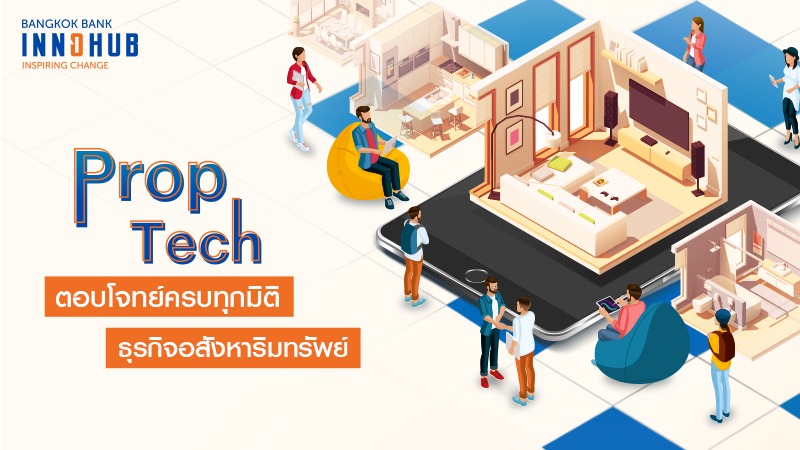Revolutionizing real estate with PropTech
We have heard of FinTech, HealthTech and even FemTech, but what is PropTech? As real estate is an industry that covers diverse areas such as people’s daily living as well as insights into economic health and changing demographic trends, many players are applying technologies such as Artificial Intelligence (AI), Big Data, the Internet of Things (IoT) and Virtual Reality (VR) to transform the construction, buying and selling, and management of the property. This is what makes PropTech an up-and-coming technology to look out for.
Many startups have developed technologies that enhance every aspect of the real estate business, including urban planning and development; smart system infrastructure; buying, selling and investing; and managing properties. From residents to sales agents and investors, technology can improve the experience and reduce the hassle for all stakeholders.
The first category of PropTech benefits those looking to buy or rent a property by providing information to support their decision making. The UK startup Realyse is one such service. It helps both residential buyers and investors to find relevant properties using AI and Big Data analysis. Realyse provides information on pricing and area population, analyzing the chances of making profits from investments, and helps calculate and formulate financial plans for buying or renting a property for its users.
CapitalRise is a startup that helps investors evaluate risks, select real estate projects to invest in, manage and report on the investment every quarter, as well as offer supportive financial services such as tax-free investment via the UK’s IFISA program. This significantly reduces the barrier to entry for this historically cost-prohibitive investment strategy, enabling anyone to start investing in real estate with just £1,000, a little over 40,000 baht.
For sellers and sales agents, technology helps enhance property viewing experiences which make closing a deal much easier. Matterport is a startup that creates virtual house tours by using VR technology to create a 3D virtual room for convenient customer viewing. Sellers can use a 3D camera to take photos of various properties and let their customers view the virtual replicas through VR glasses without having to travel to different locations. Matterport can also develop 3D digital twins of properties to visualize different interior designs or show the progress of construction, which helps customers to decide whether to buy, rent or renovate the space.
What’s more, the impact of PropTech does not end with the buying and selling process, but it also provides long-term benefits to residents. Smart home technology is being rapidly adopted in newly built properties with the help of IoT. Embue is a startup offering a centralized platform for apartments with a system of smart sensors, automation and data analysis technology that allows residents and managers to monitor levels such as room temperatures and the condition of electrical appliances, and predict and notify when an appliance needs maintenance or repair. This helps increase the convenience of managing a property and reduces utility costs for residents by 5-30%. Another startup Spaceti uses similar technology to manage commercial buildings such as offices and co-working spaces with features that help with indoor navigation, arranging meeting rooms, managing working tables and chairs, and booking parking lots.
Thailand is becoming more aware of opportunities in PropTech. Recently, Thammasat University embraced this global trend by integrating geography, economy and information system into teaching the use and design of Geographic Information System (GIS) software that uses Big Data for locational analysis and population suitability analysis to choose suitable areas for property development. The “Technology and Real Estate Industry” module is a part of a Masters in Real Estate Administration graduate program in the Thammasat Business School. Currently, over 79% of enrolled students are real estate personnel, while 21% are full-time students and people of other professions. The program aims to produce more than 100 real estate GIS technicians per year.
Property technology utilizes a diverse range of cutting-edge technology to revolutionize the experience of the real estate industry across the whole value chain. Undoubtedly, it will have much more room to grow both as a technology and as a new industry. InnoHub believes that many startups can grasp this opportunity to drive the advancement of the Thai real estate industry in the future.
Read More >> “Smart City” – A Lesson of Successful Life Quality Improvement




